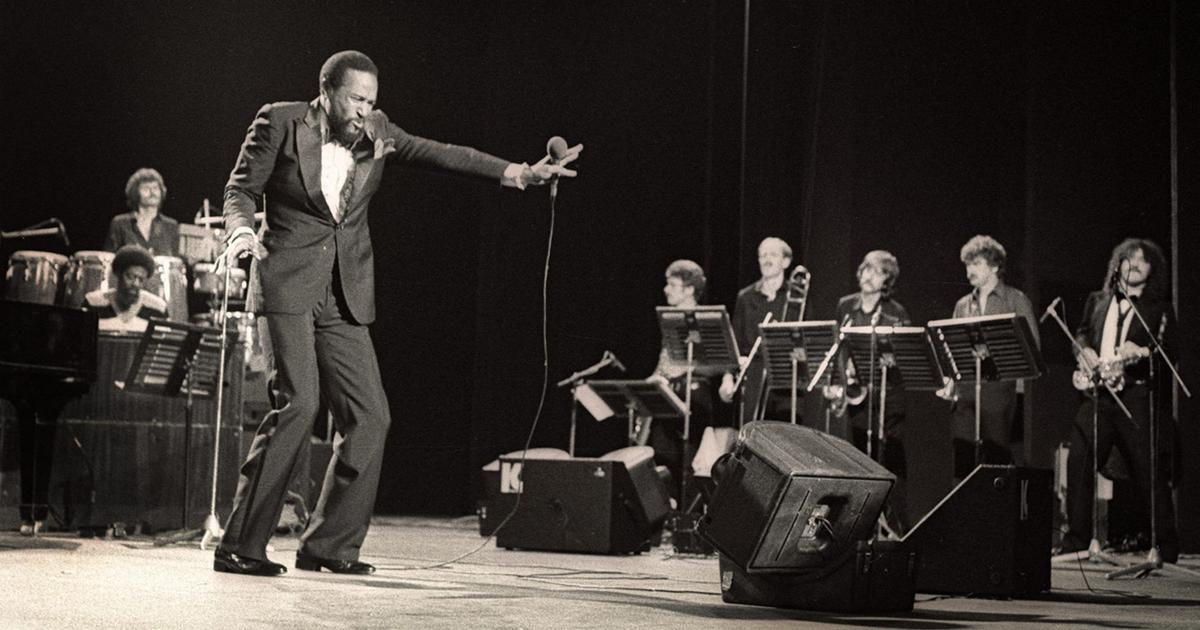Enlarge image
Photo:
Charlie Gillett Collection/Redferns/Getty Images
It must be a great honor for a songwriter when he himself is honored in a song - even if the honoree is unlikely to have noticed that the Hamburg soul-beat-mod-pop band Die Liga derOrderlichen Gentlemen sang about him with these lines : »And if the world were perfect and if it were a song / then by Holland/Dozier/Holland or Barrett Strong«.
Barrett Strong, one of the founding singers of the legendary Motown label and one of the Detroit record company's most talented songwriters, has died at the age of 81.
His death was made public by the Motown Museum through its social media presence.
A cause of death was not initially known.
The fact that The League of Ordinary Gentlemen name Strong in the same breath as the label's most famous songwriting team – Holland/Dozier/Holland – is not only for reasons of metric and rhyme: Barrett Strong was involved as a songwriter on a number of absolute classics in soul history – Often in the team with Norman Whitfield.
Just three examples: »I Heard It Through the Grapevine«, an evergreen for Marvin Gaye;
the anti-war song "War" sung by Edwin Starr;
and "Papa Was a Rollin' Stone," an epic set in the psychedelic era of the Temptations.
"Barrett was not just a great singer and pianist, he left an incredible body of work with his writing partner Norman Whitfield," Motown founder Berry Gordy said in a statement on Strong's death.
He sang the first Motown million hit
Barrett Strong wasn't even 20 years old when he allowed his friend Gordy to manage him and release his music.
Within a year he became part of the history of the Motown label that would shape the "Sound of Young America" of the 1960s.
The track »Money (That's What I Want)«, sung by Barrett Strong, became the young label's first million-seller in 1960, and the first major Motown hit.
As a singer, Strong never came even close to the success of "Money."
Decades later, he strove to be credited as co-songwriter of the track.
However, he received recognition as a songwriter for his work with Norman Whitfield.
The Whitfield/Strong duo was versatile;
the two wrote ballads like "I Wish It Would Rain" and "Just My Imagination (Running Away with Me)".
On the other hand, they managed an uptempo hit for Gladys Knight & the Pips with "I Heard It Through the Grapevine," which became a Motown classic in Marvin Gaye's darker 1968 version.
The Whitfield/Strong titles were particularly influential for the label in the late 1960s, when the social context called less for nice love songs and more political and everyday turmoil.
Their songs for the Temptations, »Cloud Nine« or »Psychedelic Shack« provided the soundtrack.
And of course the protest anthem for Edwin Starr with the much-quoted refrain »War!
What is it good for?
Absolutely ... nothing!«
When writing the lyrics for "War," Barrett drew on experiences from his personal environment, for example, a cousin had been seriously injured in Vietnam.
"You talk about stuff like that in the family and it inspires you to want to say something about it," Strong told LA Weekly magazine in 1999.
»Songs live longer than people«
Strong's songs have been covered time and time again, by the Rolling Stones and Aretha Franklin, by Bruce Springsteen and Al Green.
English singer Paul Young had his first hit with the cover of a Marvin Gaye b-side co-written by Whitfield and Strong, Wherever I Lay My Hat.
Norman Whitfield died in 2008.
Born in West Point, Mississippi, Barrett Strong moved to Detroit with his family a few years later.
He taught himself to play the piano and formed a gospel group with his sisters, the Strong Singers.
As a teenager, he met Aretha Franklin, Smokey Robinson and Berry Gordy.
"Songs live longer than people," Barrett Strong told the New York Times in 2013.
From his point of view, the publishing rights were the real basis for Motown's economic success.
"The records were just a vehicle to get the songs out there," he said, after which the real money is in the rights to the songs.
“If you give up the rights, you give up your life, your legacy.
When you're gone, the songs will still be played."
feb/AP















